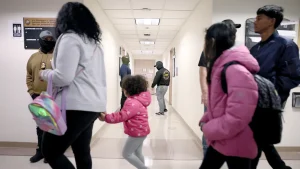Part 1: A Husband Lost in Despair
The letter from "Hopeless in Kansas" paints a heartbreaking picture of a man adrift in the sea of despair following the loss of his long-held job. The sudden unemployment five years prior has acted as a catalyst, exacerbating pre-existing struggles with depression, alcohol dependence, and smoking. What were once manageable issues have now spiraled into a vortex of self-destruction, threatening to consume him entirely. His days are marked by excessive sleep, neglect of personal hygiene, minimal food intake, and a constant reliance on alcohol. The physical manifestations of this decline are stark: significant weight loss, muscle atrophy, and the development of COPD, a severe respiratory condition directly linked to his persistent smoking habit. He appears to have lost his zest for life, his energy depleted, his motivation extinguished. Social interactions have become a source of anxiety, making even simple outings like ordering at a restaurant a daunting task. He exhibits a concerning disinterest in seeking professional help, rejecting the possibility of therapy. The overall impression is one of a man resigned to his fate, perhaps even actively hastening his demise through self-neglect.
The wife, observing this slow-motion tragedy unfold before her eyes, is understandably distraught. While she maintains a sense of personal stability, she admits to feeling numb, a likely defense mechanism against the overwhelming sadness of her husband’s situation. The intimacy they once shared has eroded, replaced by a chasm of emotional and physical distance. His declining hygiene, the constant smell of alcohol and tobacco, and the general lack of physical vitality have extinguished any remaining spark of attraction. She has attempted interventions, but her efforts have been met with resistance. The weight of her husband’s apathy and self-destructive behavior bears heavily upon her, leaving her feeling helpless and hopeless. She desperately seeks guidance on how to navigate this challenging situation.
Part 2: Abby’s Counsel: A Blend of Hope and Realism
Abby’s response to "Hopeless in Kansas" acknowledges the gravity of the situation while offering a balanced approach of encouragement and pragmatism. She recognizes the interconnectedness of the husband’s issues, suggesting that addressing the underlying depression may be the key to unlocking positive change in other areas. Abby advises the wife to communicate openly with her husband, expressing her concerns about his physical and emotional decline and how it has affected their intimacy. She proposes offering him a "carrot"—the possibility of rekindled intimacy—as motivation to seek help for his depression. This suggestion is delicate, aiming to incentivize the husband without placing undue pressure on the wife.
Abby further emphasizes the importance of medical intervention, particularly given the husband’s COPD and potential alcohol dependence. She recommends exploring nicotine substitutes and supplemental oxygen therapy to improve his physical well-being and facilitate some level of exercise. However, Abby underscores the crucial point that lasting change requires intrinsic motivation. The husband must ultimately want to help himself. If he remains resistant to change, Abby advises the wife to seek support for herself through Al-Anon, a fellowship for families and friends of alcoholics. This would provide her with a much-needed support network and help her recognize that she is not responsible for her husband’s choices.
Part 3: A Widow’s Grief and a Friend’s Concern
The second letter, from "Unexpected in Indiana," presents a different kind of relational challenge. The writer expresses concern for a recently widowed friend who seems to be withdrawing from social contact. Despite repeated attempts to connect through invitations and supportive notes, the friend’s responses are delayed and infrequent. She appears to be prioritizing other social activities, leaving the writer feeling rejected and unsure of how to proceed. The writer interprets this behavior as a clear signal to back off but seeks validation for this decision.
Part 4: Navigating the Delicate Terrain of Grief
Abby’s response to "Unexpected in Indiana" highlights the importance of sensitivity and understanding when supporting someone grieving the loss of a spouse. While the writer’s intentions are undoubtedly well-meaning, their efforts may be perceived as overwhelming by the grieving friend. Abby suggests that the friend’s withdrawal is likely a coping mechanism, a way to navigate the intense emotions and overwhelming changes associated with widowhood. The persistent attempts to connect, however well-intentioned, might be adding to the friend’s stress and contributing to her retreat.
Abby advises the writer to respect the friend’s need for space and allow her time to regain her footing. She suggests that pushing for connection at this vulnerable stage could further alienate the friend, exacerbating her sense of isolation. Patience and understanding are key. A gentler approach, perhaps a simple periodic check-in without placing demands on the friend’s time or emotional resources, might be more effective in maintaining the connection.
Part 5: The Underlying Themes of Self-Responsibility and Support
Both letters and Abby’s corresponding responses underscore interconnected themes: the importance of personal responsibility in addressing one’s problems and the crucial role of support systems in navigating life’s challenges. In the first case, the husband’s self-destructive behavior, while fueled by underlying depression, ultimately requires him to take ownership of his choices and actively seek help. The wife, despite her love and concern, cannot force him to change. She must recognize her own limitations and prioritize her well-being by seeking support through Al-Anon.
In the second case, the grieving widow must grapple with her loss and find her own path to healing. While friends can offer support, they cannot dictate the grieving process. The friend’s attempts to connect, though well-intentioned, might be inadvertently hindering the widow’s healing journey. Recognizing this, the friend needs to step back and respect the widow’s need for space, while remaining available as a source of support when needed.
Part 6: The Wisdom of Stepping Back and Letting Go
Abby’s advice in both scenarios emphasizes the importance of knowing when to step back and allow others to navigate their own challenges. While offering support is crucial, it’s equally important to recognize the limits of one’s influence. Trying to force change or control another person’s behavior is often counterproductive. Respecting individual agency and providing space for self-discovery can be more effective in fostering positive change. In some cases, the most supportive action is to simply be present, offer understanding, and allow individuals to find their own way forward. This requires a delicate balance of empathy, patience, and respect for personal boundaries.















